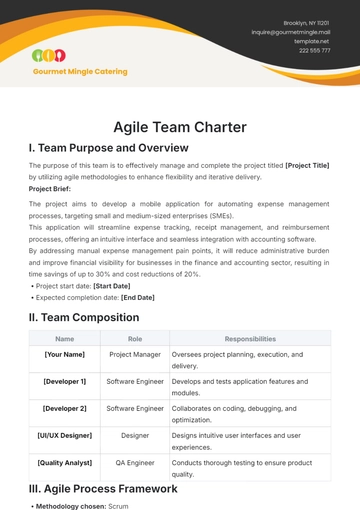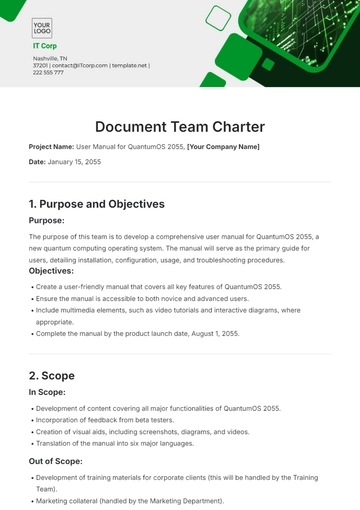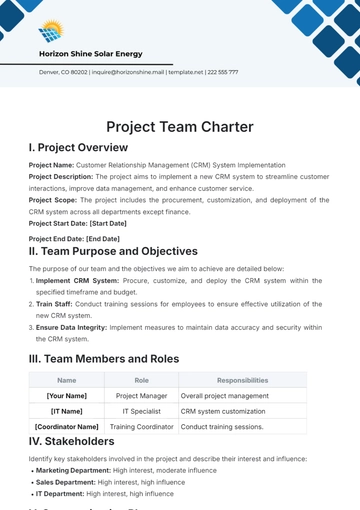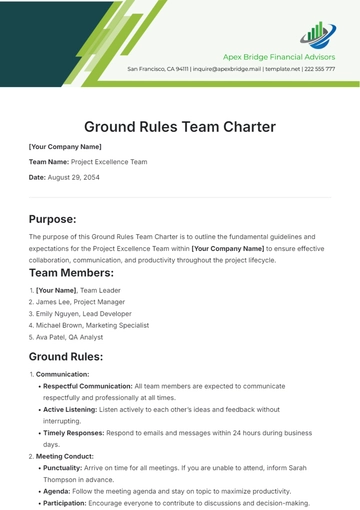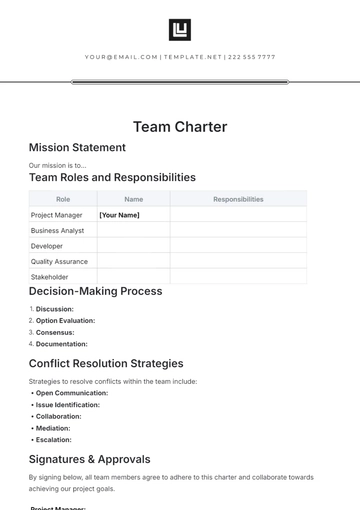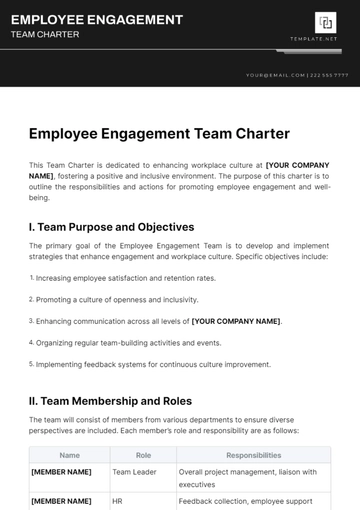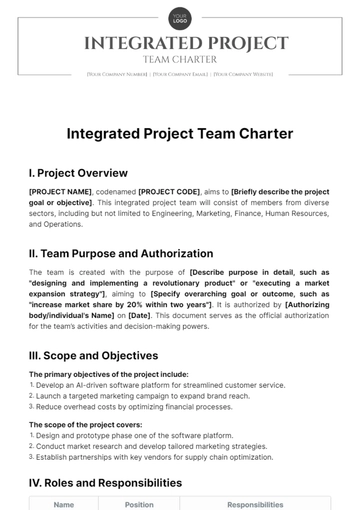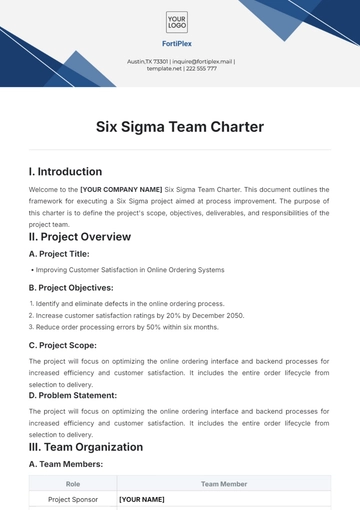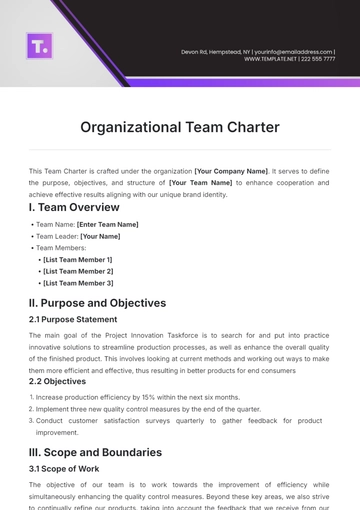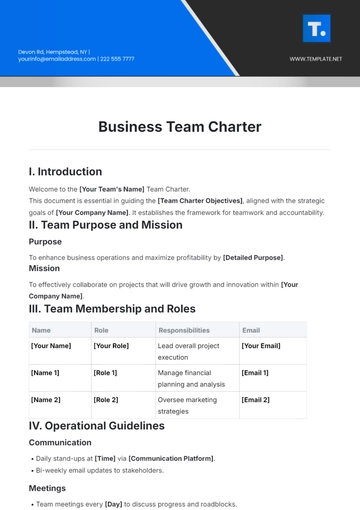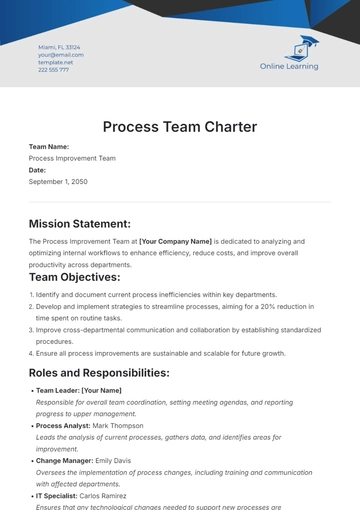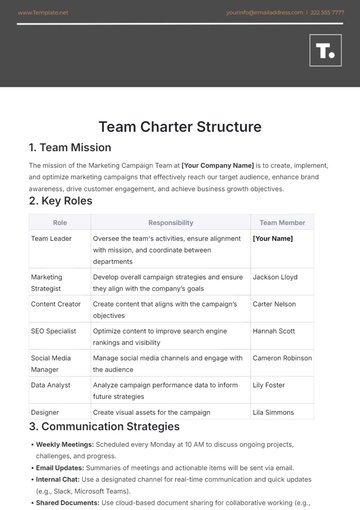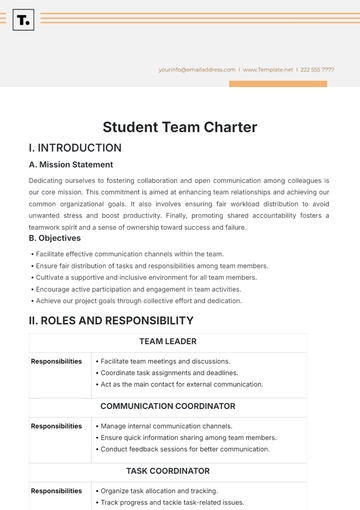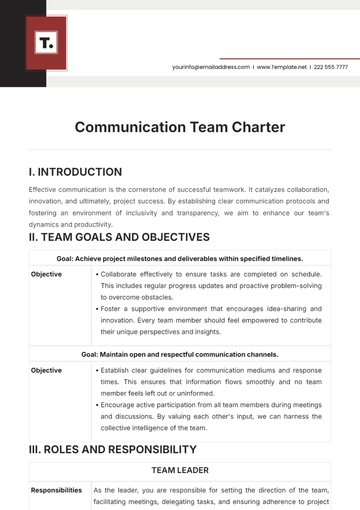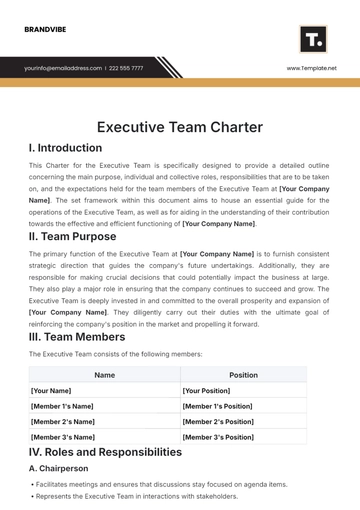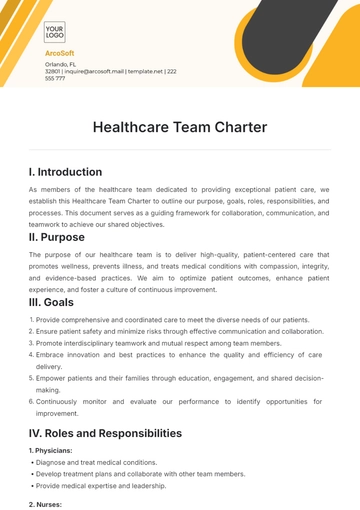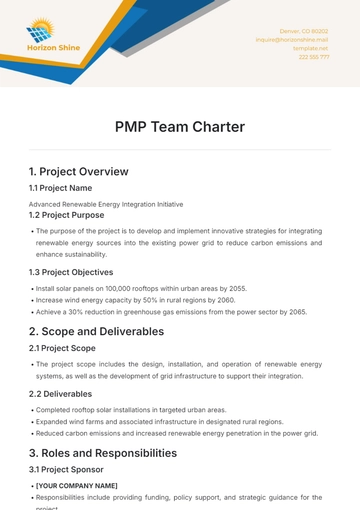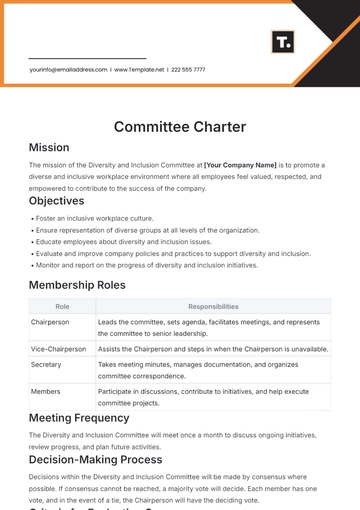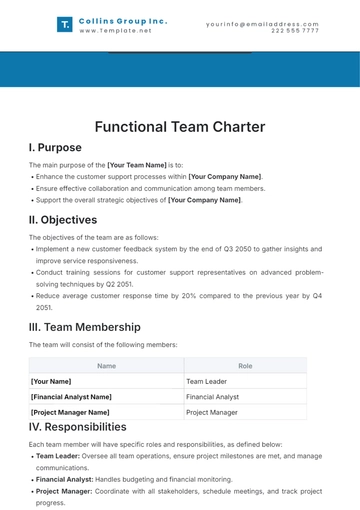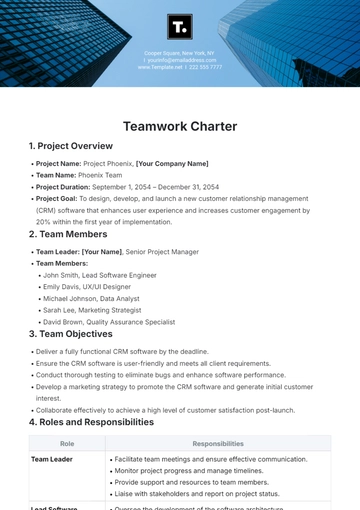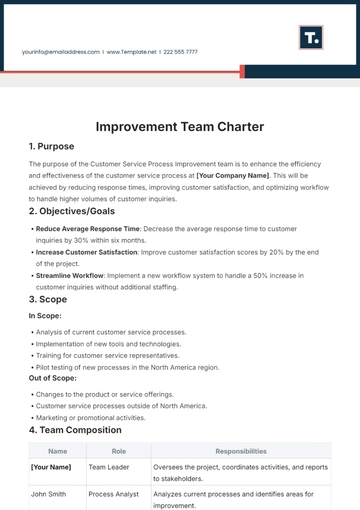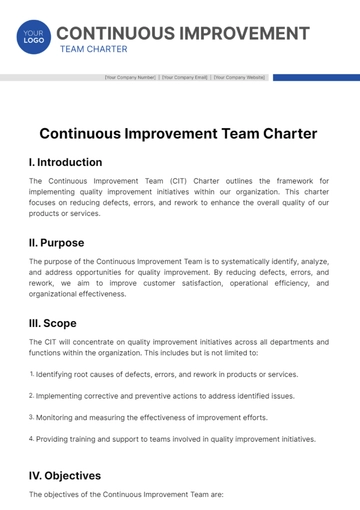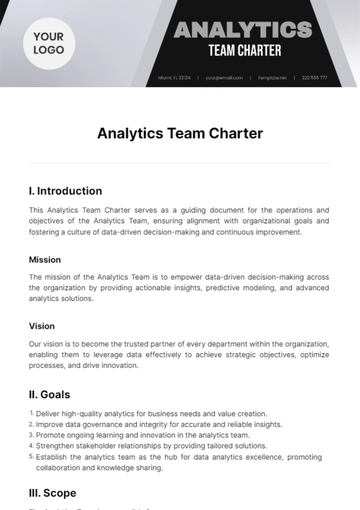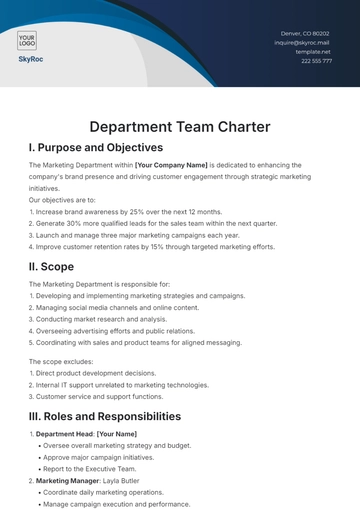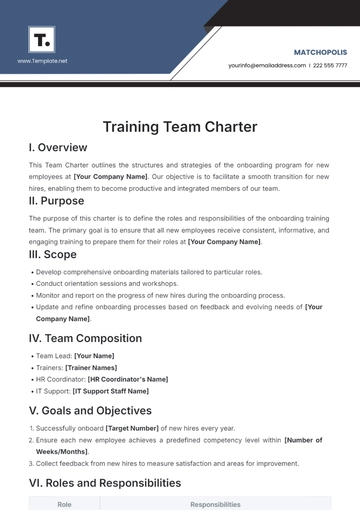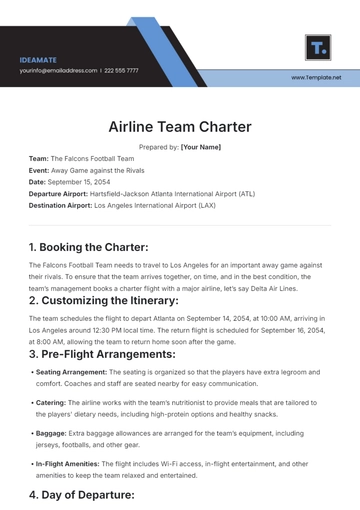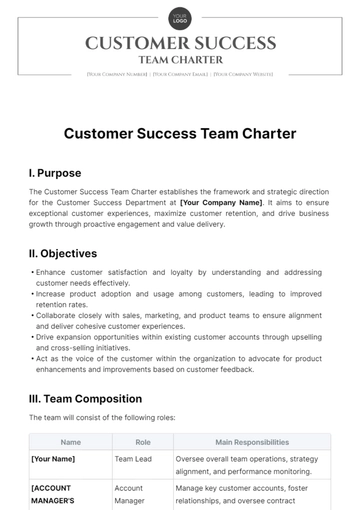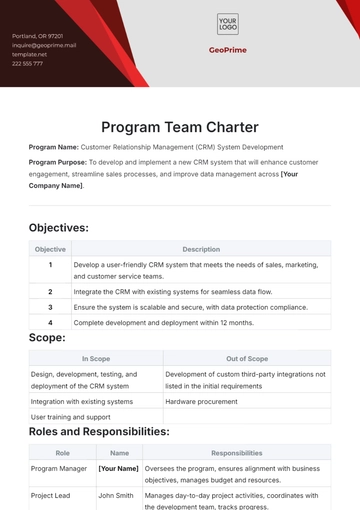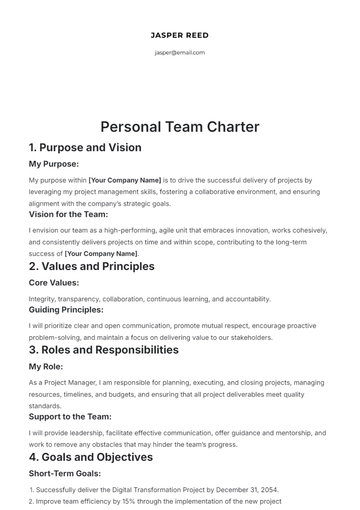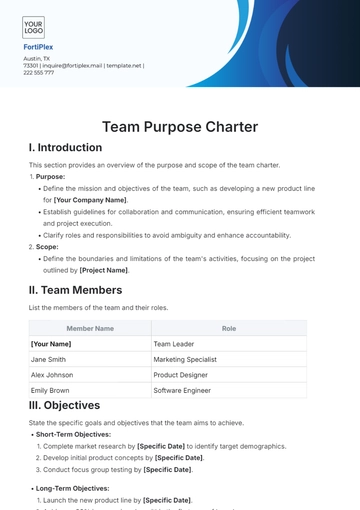Free Teamwork Team Charter
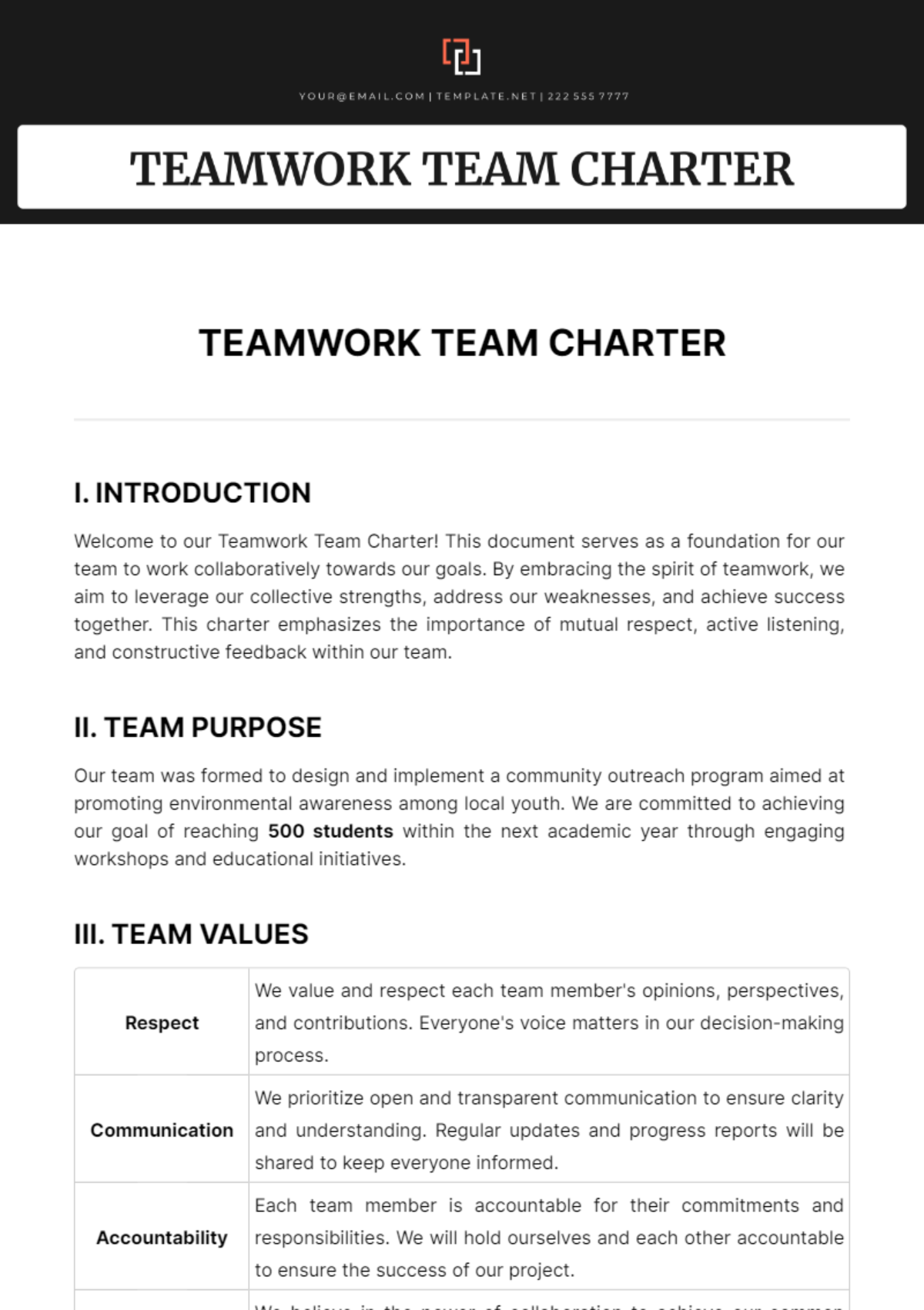
I. INTRODUCTION
Welcome to our Teamwork Team Charter! This document serves as a foundation for our team to work collaboratively towards our goals. By embracing the spirit of teamwork, we aim to leverage our collective strengths, address our weaknesses, and achieve success together. This charter emphasizes the importance of mutual respect, active listening, and constructive feedback within our team.
II. TEAM PURPOSE
Our team was formed to design and implement a community outreach program aimed at promoting environmental awareness among local youth. We are committed to achieving our goal of reaching 500 students within the next academic year through engaging workshops and educational initiatives.
III. TEAM VALUES
Respect | We value and respect each team member's opinions, perspectives, and contributions. Everyone's voice matters in our decision-making process. |
Communication | We prioritize open and transparent communication to ensure clarity and understanding. Regular updates and progress reports will be shared to keep everyone informed. |
Accountability | Each team member is accountable for their commitments and responsibilities. We will hold ourselves and each other accountable to ensure the success of our project. |
Collaboration | We believe in the power of collaboration to achieve our common goals. Working together allows us to leverage our diverse skills and expertise. |
Continuous Improvement | We are dedicated to continuously learning and improving as a team. Feedback will be actively sought and used to refine our strategies and approaches. |
IV. TEAM GOALS
Our team has identified the following SMART goals to guide our efforts:
Specific: Clearly define what we aim to achieve.
Measurable: Establish criteria to measure our progress and success.
Achievable: Set goals that are realistic and within our capabilities.
Relevant: Ensure that our goals align with our team's purpose and objectives.
Time-bound: Establish deadlines to keep us accountable and focused.
A. Short-Term Goals
Organize a brainstorming session to generate ideas for workshop topics within the next two weeks.
Develop a detailed project plan outlining tasks and deadlines by the end of the month.
Secure partnerships with local schools and community organizations by the end of the quarter.
B. Long-Term Goals
Successfully deliver environmental workshops to 500 students within the next academic year.
Establish a sustainable framework for the community outreach program to ensure its continuation beyond the initial implementation phase.
V. ACTION PLAN
To accomplish our goals, we have devised the following action plan:
Identify Individual Strengths and Weaknesses: Each team member will assess their strengths and weaknesses related to project tasks such as workshop facilitation, event planning, and outreach coordination. This information will be shared with the team to inform role assignments.
Assign Roles and Responsibilities: Based on individual strengths and preferences, roles and responsibilities will be assigned to ensure efficient task allocation. A project manager will oversee the overall implementation, with specific team members leading workshops, managing partnerships, and handling logistics.
Establish Communication Channels: We will determine the most effective communication channels for regular updates, discussions, and feedback. A dedicated Slack channel will be created for daily communication, supplemented by weekly team meetings via video conference.
Schedule Regular Meetings: Weekly or bi-weekly meetings will be scheduled to review progress, discuss challenges, and adjust plans if necessary. Agendas and meeting minutes will be circulated in advance to ensure productive discussions.
Implement Feedback Mechanism: We will establish a feedback mechanism to encourage open and constructive feedback among team members. Anonymous surveys will be conducted after each workshop to gather feedback from participants, while team members will provide peer feedback during monthly check-ins.
Monitor and Evaluate Progress: Regularly monitor and evaluate our progress towards achieving our goals, making adjustments as needed. Key performance indicators (KPIs) such as workshop attendance rates and participant feedback scores will be tracked to measure our success.
VI. CONFLICT RESOLUTION
In the event of conflicts or disagreements, we will address them openly and respectfully. The following steps will be followed:
Identify the Issue: Clearly articulate the nature of the conflict and the parties involved. An open discussion will be facilitated to ensure all perspectives are heard.
Listen Actively: Each party will have the opportunity to express their perspective while others listen actively without interruption. Empathy and understanding will be encouraged to foster a collaborative resolution.
Find Common Ground: Identify areas of agreement and work towards finding a mutually acceptable solution. Compromise may be necessary to achieve a resolution that respects everyone's needs and concerns.
Seek Mediation if Necessary: If the conflict persists, a neutral mediator may be involved to facilitate resolution. The mediator will help guide the discussion and ensure a fair and balanced outcome.
Document Resolution: Once resolved, document the agreed-upon solution and ensure that all parties are committed to its implementation. Follow-up meetings may be scheduled to check in on progress and address any lingering issues.
VII. CONCLUSION
By committing to this Teamwork Team Charter, we acknowledge the importance of collaboration, communication, and mutual respect in achieving our goals. Together, we will strive for excellence and support each other's growth and success.
VIII. SIGNATURES
Each team member acknowledges and agrees to the terms outlined in this charter by signing below:
Name | Date Signed | Signature |
|---|---|---|
[Your Name] | [DATE] |
|
[Team 1's Name] | [DATE] |
|
[Team 2's Name] | [DATE] |
|
- 100% Customizable, free editor
- Access 1 Million+ Templates, photo’s & graphics
- Download or share as a template
- Click and replace photos, graphics, text, backgrounds
- Resize, crop, AI write & more
- Access advanced editor
Enhance and Discover the Teamwork Team Charter Template from Template.net. Crafted for seamless collaboration, this editable and customizable tool empowers teams to define their goals and roles with precision. Enhanced with our AI Editor Tool, it ensures effortless customization, fostering a culture of clarity and cohesion within your team.

